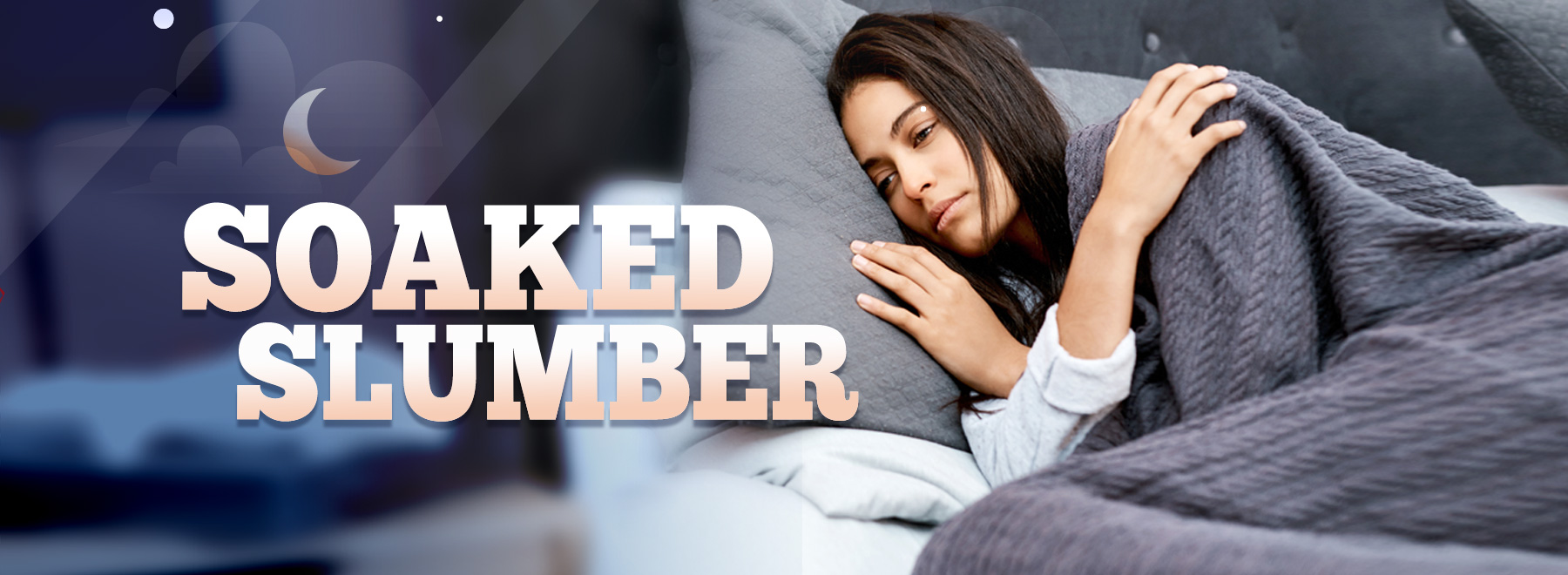Night sweats are nothing to sleep on
Unfortunately for many Americans, sleeping is one percent respiration and 99 percent perspiration.
Or so it many seem to the more than 40 percent of adults who, as one study shows, reported suffering from night sweats, which can rise up when you’re trying to sleep.

“Occasional sweating is not uncommon or abnormal,” said Dr. Sonya Shipley, associate professor of family medicine at the University of Mississippi Medical Center.
“It is the body’s response to an elevated temperature and, in fact, keeps us safe. High body temperatures can be dangerous, so sweating, though sometimes a nuisance, is actually protective.”
Bedtime night sweats, though, can make you feel like you’re sleeping in a swamp, and can signal certain unsavory medical conditions.
Among them, as the American Family Physician Journal points out, are human immunodeficiency virus, gastroesophageal reflux disease, obstructive sleep apnea, hyperthyroidism (overactive thyroid) and hypoglycemia (low blood sugar).
But the culprit could be one of several less serious causes, and you should check those out first.

“We’ll hear people complain of sweating at night, especially at summer time,” said Dr. Savannah Duckworth, assistant professor of internal medicine at UMMC.
“If you’re among them, maybe you aren’t sleeping under a fan at night, and during the summer in Mississippi, you may need to.”
Hormonal problems or changes, such as menopause, could be the reason. “Many women have struggles with menopause and night sweats,” Duckworth said. Up to 97 million have trouble sleeping because of hot flashes that lead to night sweats, the Sleep Foundation reports.
Anxiety or low blood sugar, both of which can make you sweat any time, including at night, could also be the underlying cause, Shipley said.
Certain medications could be the offender, such as those to treat high blood pressure.
“Any medicine that can dry you out, that can make you sleepy, can make you feel flushed or hot but would not necessarily cause night sweats,” Duckworth said.
“However, some medications can cause sweating. Not everyone responds this way, but some anti-depressants may cause night sweats.”
Spicy foods, or any food eaten too close to bedtime, may be the aider and abettor. Or exercising too late.
So, eliminating night sweats might be just a matter of removing blankets, sleeping in lighter clothes, avoiding meals late in the day – no later than two or three hours before bedtime, working out earlier, or lowering the room temperature; research shows that around 65 degrees F. is best for sleep.
“I would suggest trying those things first, and if it improves, it could be something you’re doing at night or it’s your environment,” Duckworth said.
“If the night sweats resolve, it’s benign, and we’re very excited that it’s not a big problem. We worry about it when it’s drenching night sweats. If it’s consistent, there may be something deeper going on.
“Two of the scariest causes are infections and cancer; they can cause pretty bad night sweats.”
It’s time to see a physician, Shipley said, “if there is an associated fever or if it’s very frequent. If you are concerned, see a doctor. Whatever you do, though, do not visit Dr. Google.”
Another action trigger, Duckworth added: “Night sweats that happen multiple nights and consistently; when you’re getting up and changing your sheets, pillow cases or pajamas – that would be the time to get an appointment or start a discussion.”
That may lead to getting tested, she said. “We would start with blood work and, depending on that, see if we need to follow up and do any kind of imaging.”
Whatever you do, “do not assume nothing is wrong,” Shipley said. “Check with your doctor first. Thereafter, if your doctor is not concerned, you can take whatever measures necessary to be comfortable.
“Do remember, though, that sweating is the body’s normal response. We should not expect zero sweating; that is actually abnormal.”
The above article appears in CONSULT, UMMC’s monthly e-newsletter sharing news about cutting-edge clinical and health science education advances and innovative biomedical research at the Medical Center and giving you tips and suggestions on how you and the people you love can live a healthier life. Click here and enter your email address to receive CONSULT free of charge. You may cancel at any time.



